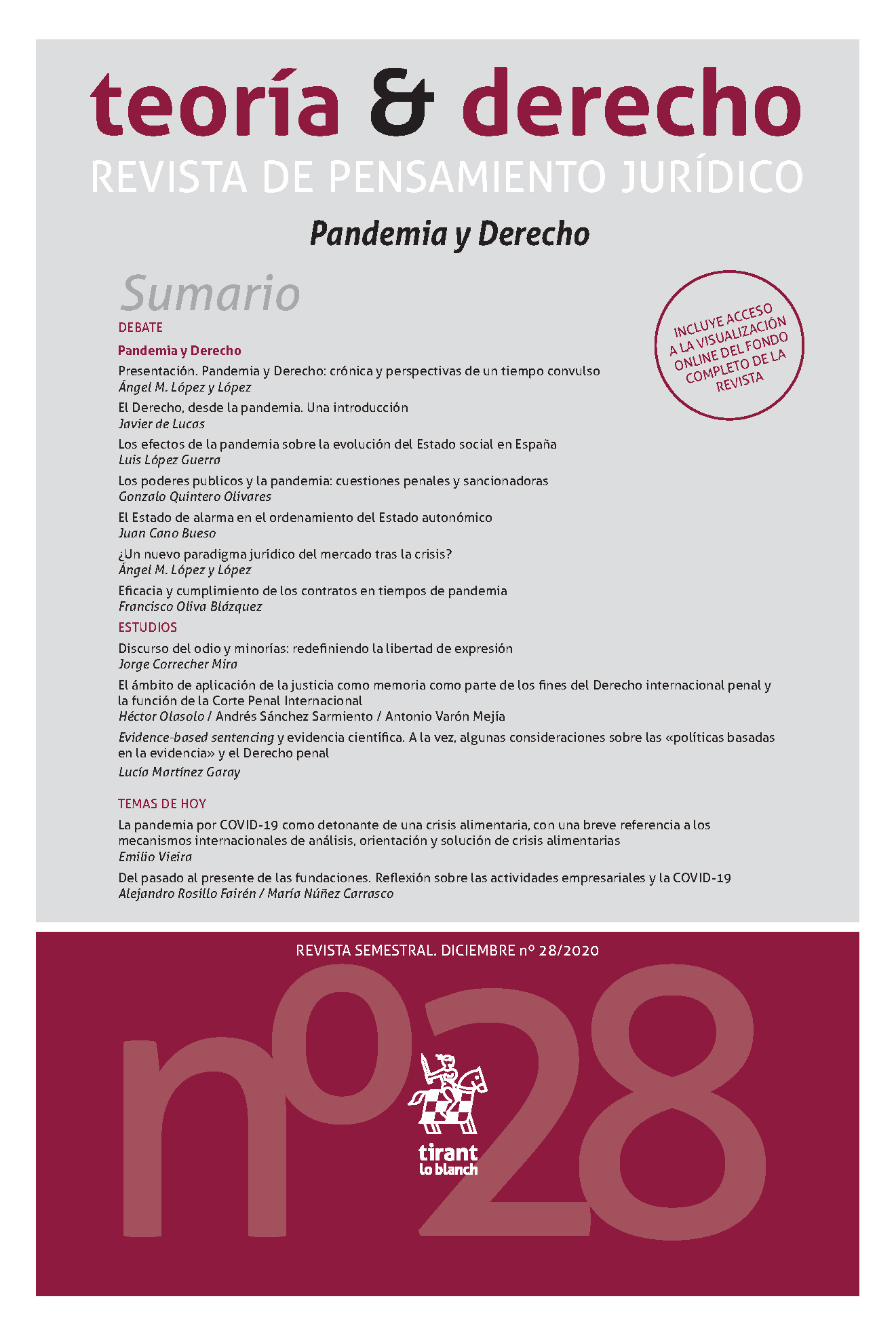El Estado de alarma en el ordenamiento del estado autonómico
DOI:
https://doi.org/10.36151/td.2020.013Palabras clave:
estado de alarma, Derecho de excepción, limitación de derechos, autoridad competente, desescalada, confinamiento, Estado de las autonomíasResumen
En situaciones de normalidad constitucional, la defensa de la constitución viene encomendada a los poderes ordinarios del Estado y a los mecanismos ideados para preservar la supremacía constitucional. No obstante, puede suceder que las previsiones constitucionales ordinarias sean insuficientes ante situaciones de emergencia, que pueden ser de naturaleza endógena o exógena. Surge, entonces, el Derecho de excepción, que, en su modalidad de estado de alarma, es un Derecho especial y transitorio con capacidad para limitar el ejercicio de derechos fundamentales, alterar el equilibrio de poderes y desplazar con su fuerza normativa la aplicación ordinaria de la constitución. Cuando tales situaciones de emergencia se producen en un Estado descentralizado, como es en España el Estado autonómico, el orden constitucional de distribución de competencias y los poderes autonómicos se mantienen completamente vigentes, si bien sus disposiciones pueden colisionar con las medidas adoptadas por la autoridad competente central, en cuyo caso se verán temporalmente desplazadas en su vigencia.
Descargas




















